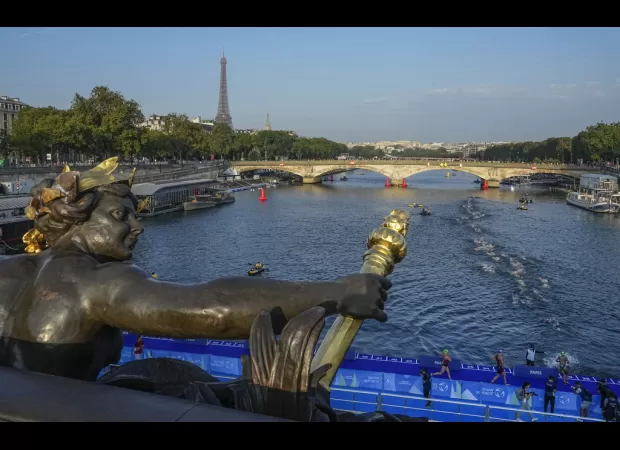High levels of E. coli discovered in Paris river prior to Olympics.
Unsafe levels of contamination were discovered in the river where athletes plan to swim in under two months.

Recent test results have shown that the water in the Seine River may not be safe for swimmers during the upcoming Paris Olympics. The levels of E. coli, a dangerous bacteria, were found to be elevated just two months before the swimming competitions are scheduled to take place. The tests, published yesterday by monitoring group Eau de Paris, revealed that the bacteria levels were beyond the safe limit for athletes, specifically in the first eight days of June. This was due to heavy rain in Paris, which caused an increase in bacteria, including E. coli and enterococci.
There has been concern about the safety of the Seine River for the Olympics, but a senior International Olympic Committee executive recently stated that there is no reason to doubt that the races will go ahead as planned in the historic downtown stretch of the river near the iconic Eiffel Tower. The first event to take place in the cleaned-up Seine will be the men's triathlon on July 30, followed by the women's triathlon the next day and a mixed relay event on August 5. The marathon swimming races for women and men will be held on August 8 and 9, respectively, in waters that have been historically polluted. However, a significant investment of $1.5 billion was made to improve the water quality before the Olympics.
Despite the IOC's confidence in the safety of the Seine, the final decision should ultimately be made by the governing bodies of individual sports, such as World Aquatics and World Triathlon. These organizations follow the European standards, which state that the safe limit for E. coli is 900 colony-forming units per 100 millilitres. During the first eight days of June, the test results showed that the levels of E. coli frequently exceeded this limit. On the other hand, enterococci levels were mostly within safe limits, indicating an improvement in water quality from June 1 to June 9 due to better weather conditions.
One of the major concerns about the safety of the Seine water for the Olympics is the impact of heavy rain. To prevent street flooding, excess rainwater, which may contain fecal bacteria, is diverted into the river through the sewer system. However, to address this issue, a large reservoir was built in May, capable of storing 50,000 cubic meters of water during heavy rainfall. It is hoped that this will help improve the water quality and make it safe for swimmers during the Olympics.
Water pollution in major cities can be caused by various factors such as runoff, illegal dumping of chemicals, and boat traffic. It is a complex issue that requires continuous monitoring and improvement. Earlier this week, Paris' mayor Anne Hidalgo promised to take a dip in the Seine before the start of the competition, but she recently announced that her swim will be postponed until after the snap elections in France, which end on July 7. This decision was made to ensure the safety of the mayor and to avoid any potential political conflicts.


